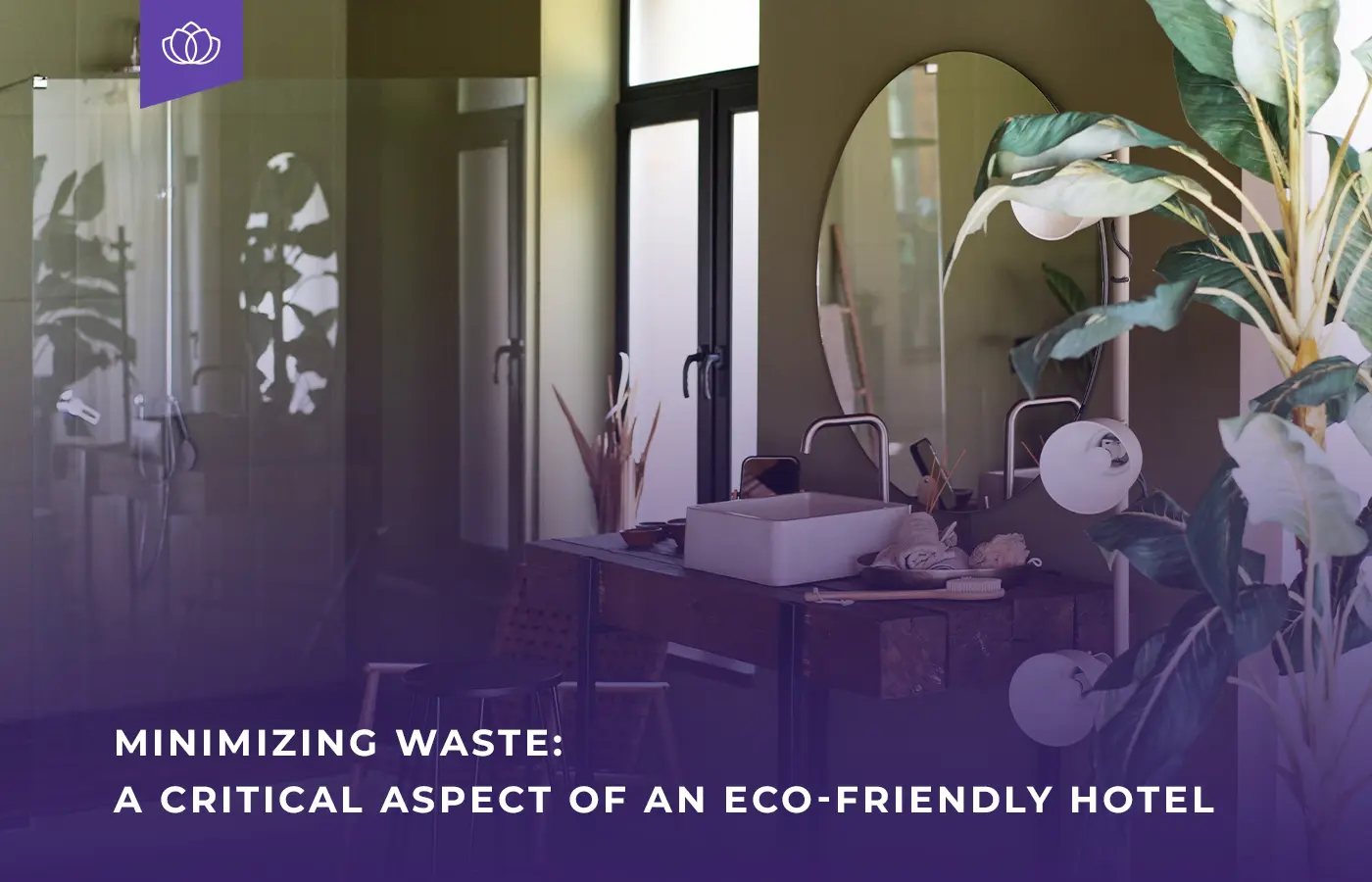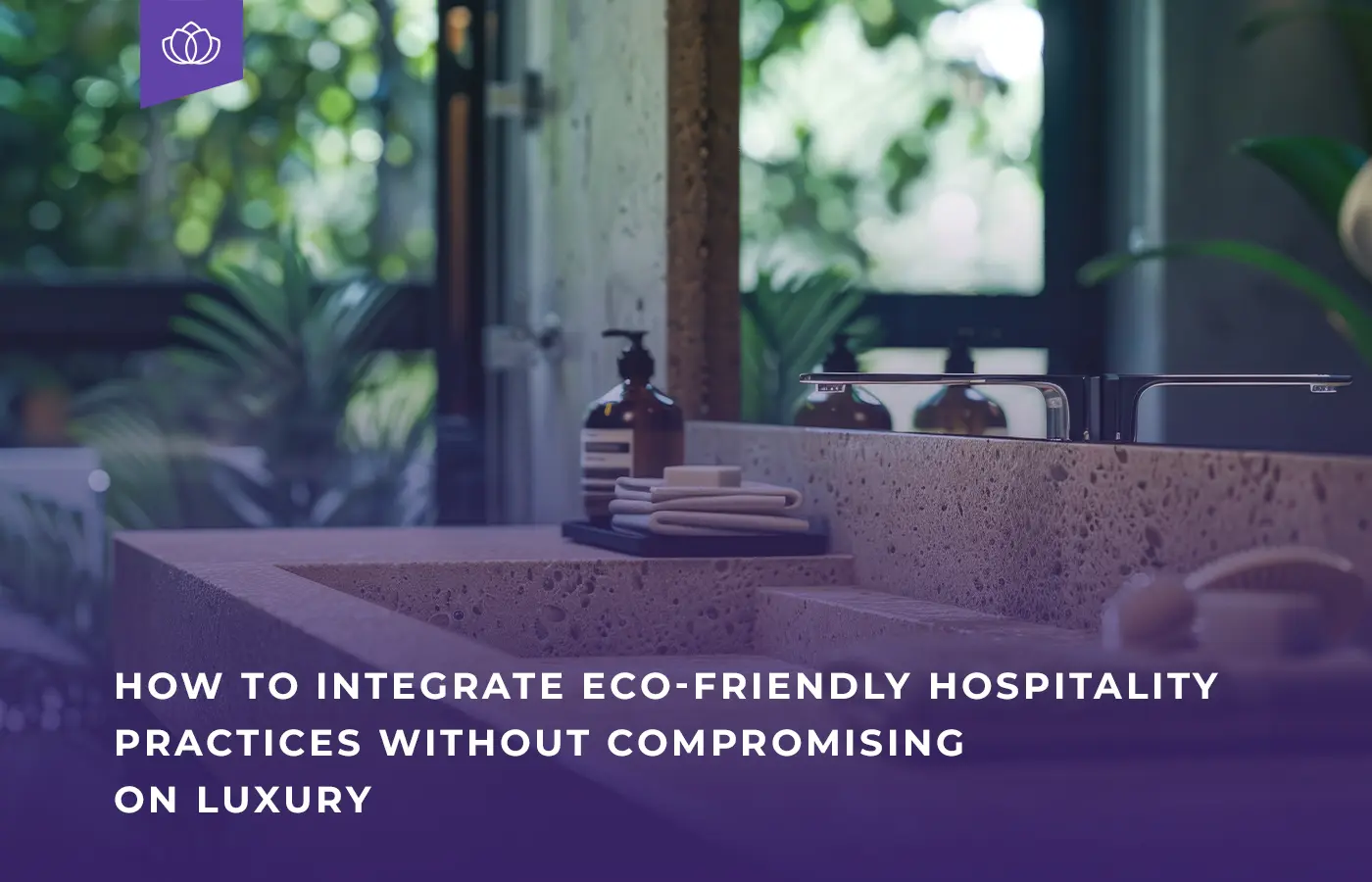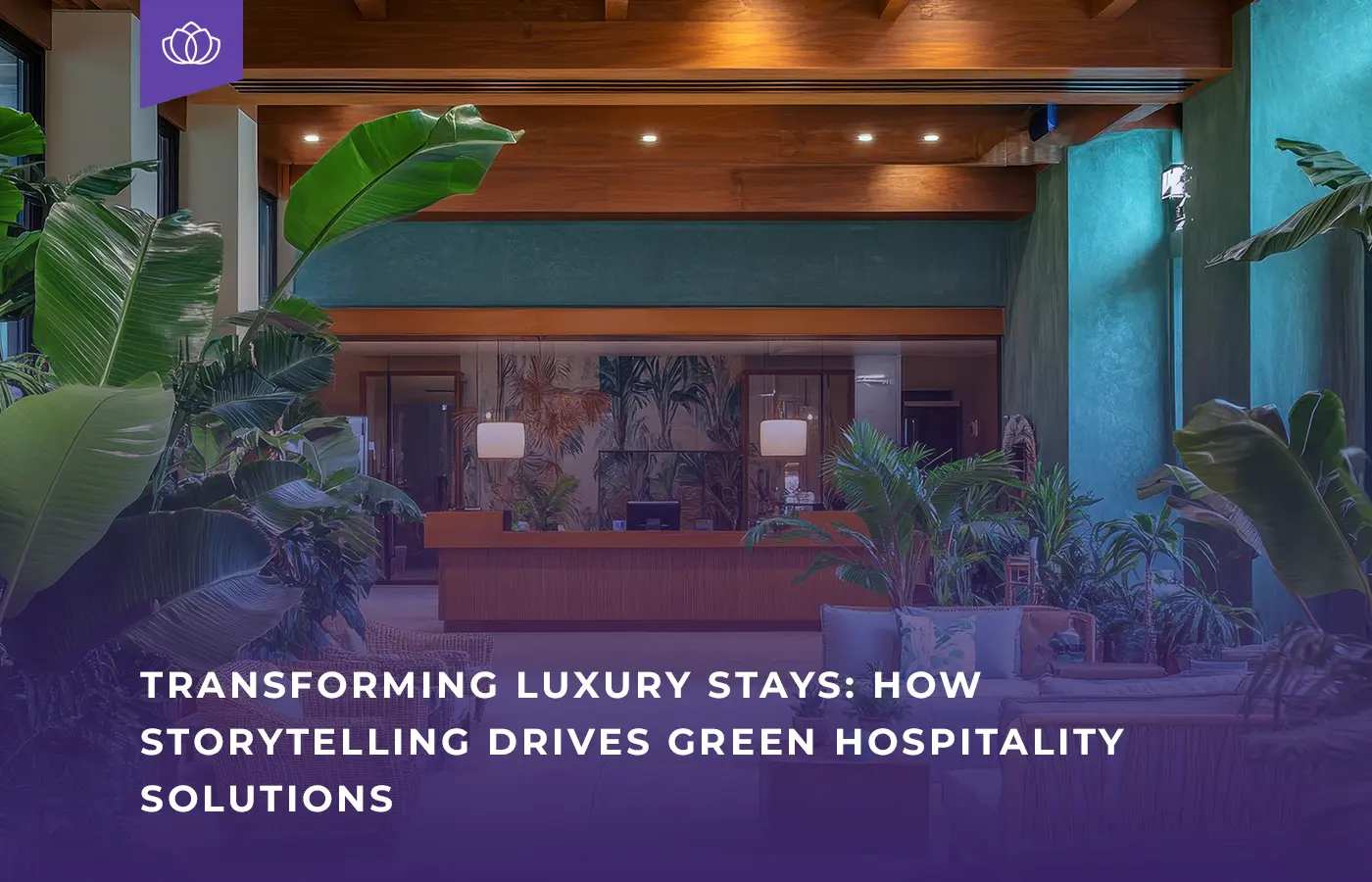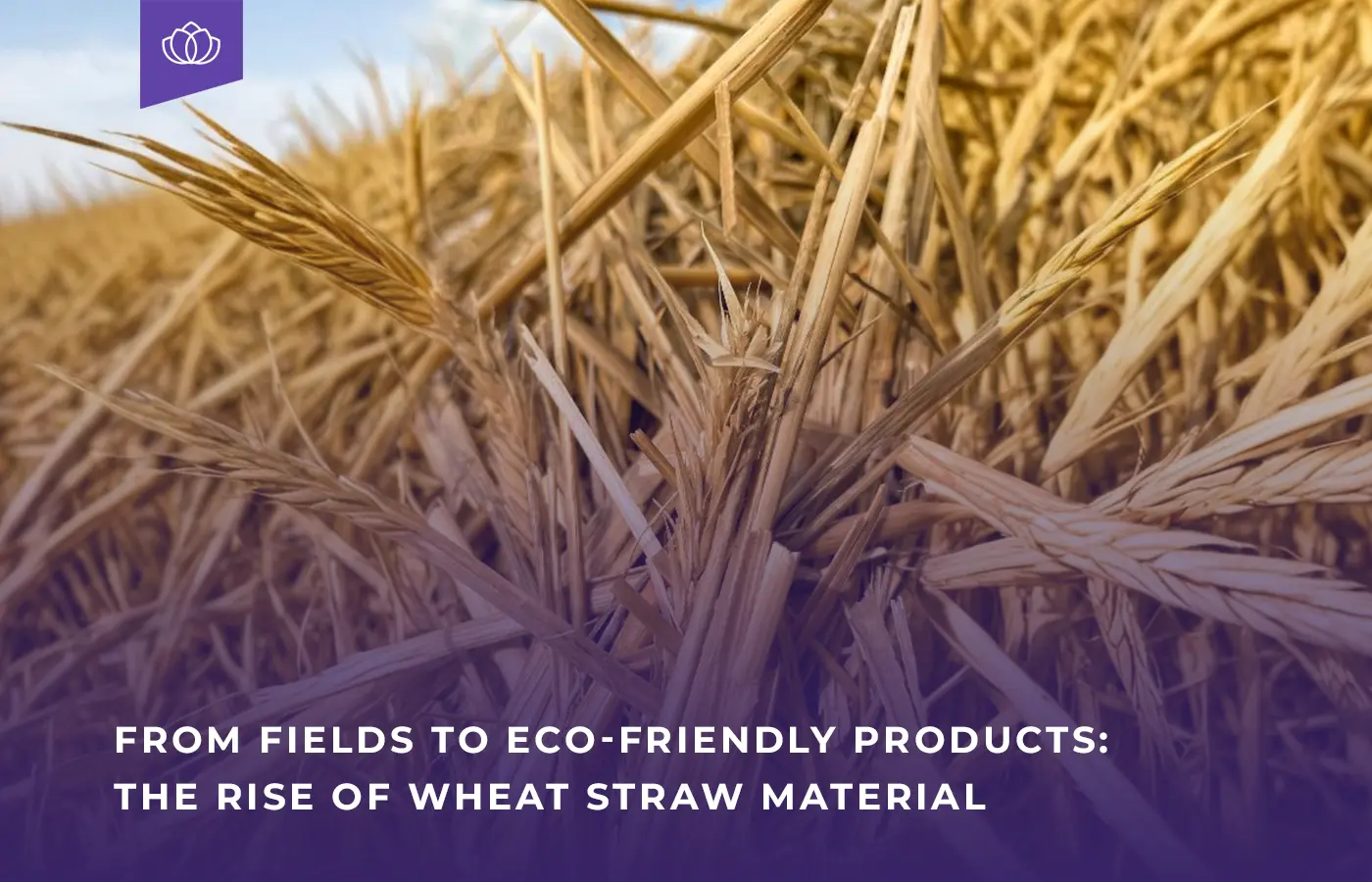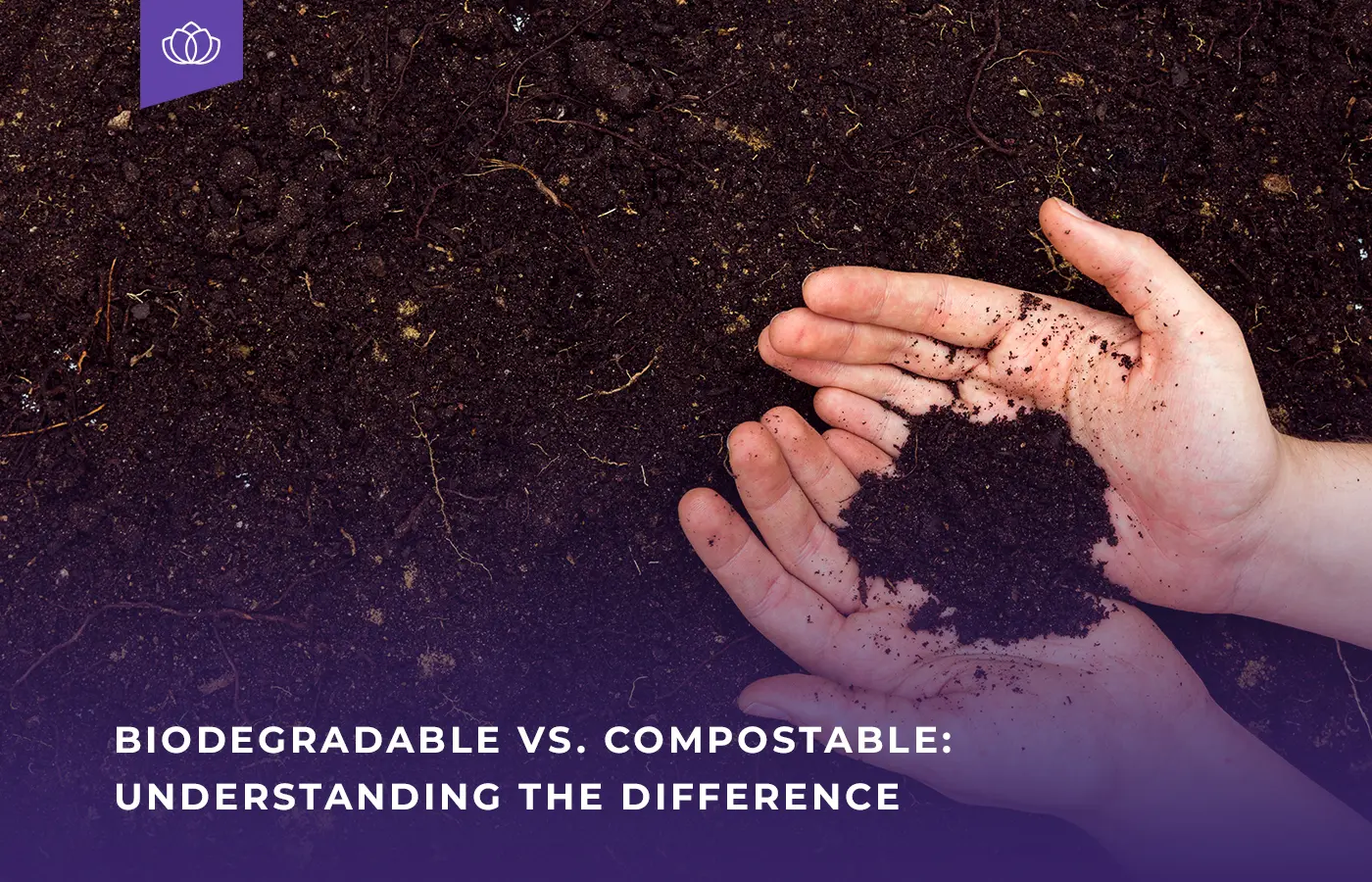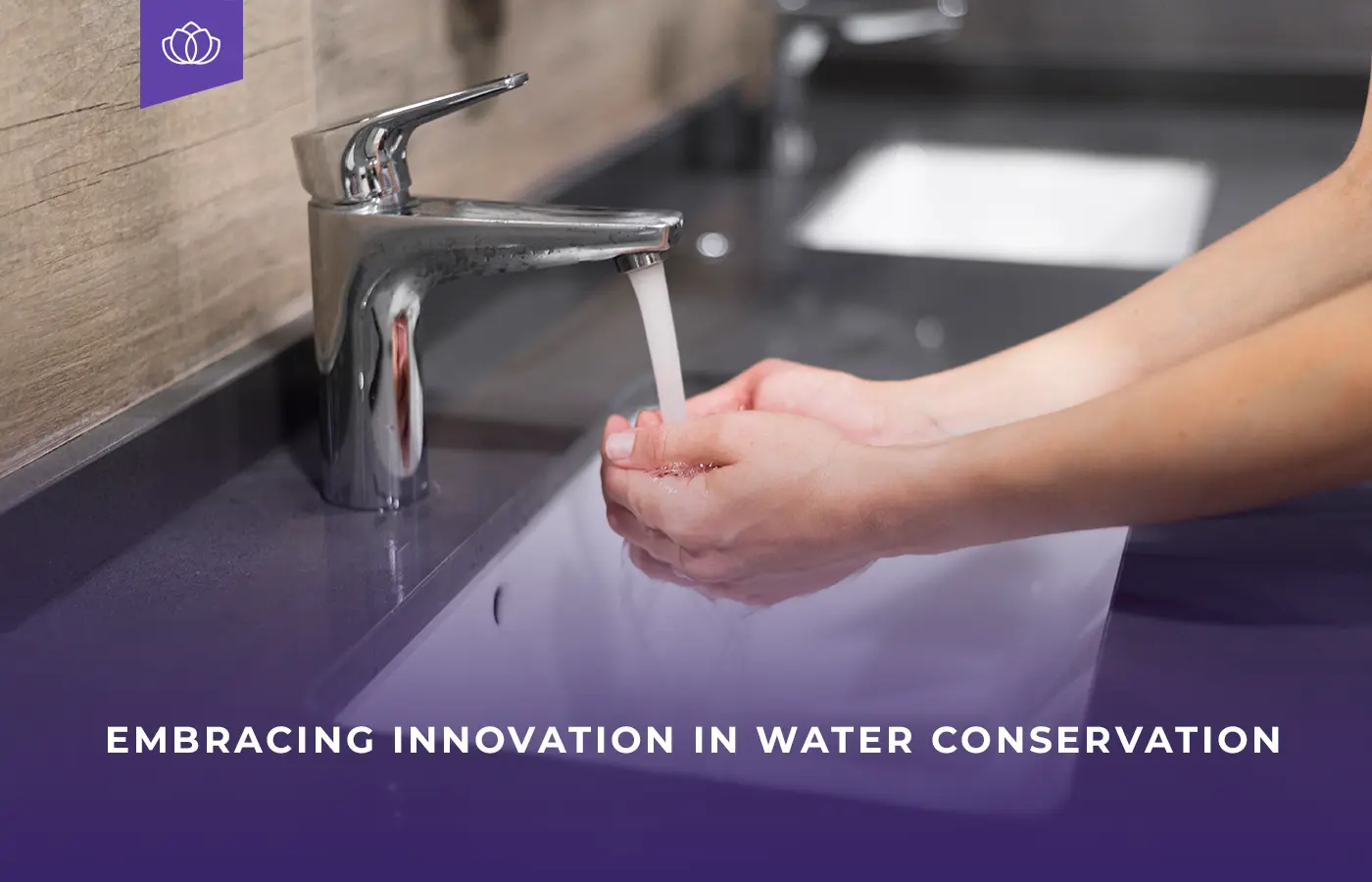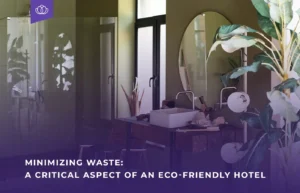The terms biodegradable and compostable are interchangeably used for eco-friendly choices. But what do they mean? How are they different?
Understanding these distinctions is essential in a world where sustainability is becoming a key factor for both consumers and industries. Biodegradable and compostable products break down in the environment, but the conditions, timeframes, and environmental impacts vary.
It is natural to get confused about the difference between compostable and biodegradable materials. While all compostable products are biodegradable, not all biodegradable products are compostable. The key difference is their production materials, how they decompose, and the residual elements after decomposition.
This blog will explore the unique qualities of both terms, helping you make informed choices that align with your commitment to a healthier planet. Whether you’re a hotel looking to enhance guest experiences sustainably or a curious consumer, let’s dive into the specifics of these earth-friendly alternatives.
What Is Biodegradability?
A typical example of biodegradation we encounter every day is a banana peel. Whether tossed in a compost bin or left in nature, a banana peel doesn’t last long. Natural organisms, like bacteria and fungi, quickly begin breaking it down. The peel decomposes into soil-enriching nutrients within weeks, leaving no waste behind. In short, anything that is organic or can break down into methane and CO2 is biodegradable.
Biodegradability applies to products like plastic as well. What is essential to know is what they leave behind when they degrade. However, they don’t all break down the same way. Some biodegradable plastics, for instance, may take years to decompose in landfills, potentially leaving behind microplastics or emitting carbon dioxide. For eco-conscious hotels, choosing biodegradable guest amenities that fully and quickly decompose is essential to support sustainability goals effectively.
Proper Disposal of Biodegradable Products
To truly support sustainability, biodegradable products require careful disposal in facilities equipped to handle their breakdown effectively. Without adequate oxygen, as is often the case in landfills, these products can release methane, a potent greenhouse gas.
Hotels committed to sustainable guest amenities can enhance their environmental impact by directing biodegradable waste to recycling centers or biogas facilities that enable safe, controlled decomposition.
Another approach is to reduce the amount of waste produced by educating guests and contributing positively to the environment, aligning with luxury hotels’ sustainability goals.
What is Composting?
Composting is recycling organic waste, such as food and yard waste, into nutrient-rich material that enhances soil health. It involves the decomposition of organic matter by microorganisms, fungi, and worms, resulting in two valuable byproducts: compost, which is a dark, crumbly soil-like substance, and compost tea, a liquid fertilizer. These byproducts enrich soil with essential nutrients, improve water retention, and reduce the need for chemical fertilizers. Composting minimizes waste sent to landfills and helps mitigate greenhouse gas emissions, contributing to a more sustainable environment.
What Are Compostable Products?
Compostable products represent a higher standard in sustainable guest amenities. Unlike standard biodegradable items, compostable products break down entirely into humus—a nutrient-rich material that enriches soil and supports plant growth. Materials like cornstarch and bagasse are commonly used in compostable guest amenities, making them ideal choices for hotels focused on environmental health and appealing to eco-conscious guests. Compostable products leave no harmful residues when disposed of properly, helping hotels maintain a zero-waste approach.
Key Differences Between Biodegradable and Compostable Products:
Understanding the difference between biodegradable and compostable products is essential for hotels aiming to enhance their sustainable guest offerings. Here’s a breakdown:
Breakdown Process:
- Biodegradable: Decomposes naturally with the help of microorganisms but may leave behind microplastics or carbon emissions if made from synthetic materials.
- Compostable: Completely decomposes under ideal conditions into organic matter, enhancing soil health without leaving harmful residues.
Timeframe:
- Biodegradable: Decomposing can take weeks to years, depending on the material and environmental conditions.
- Compostable: Under ideal composting conditions, it generally decomposes within 90 to 180 days, making it a more reliable option for sustainable guest amenities.
Byproducts:
- Biodegradable: May release greenhouse gases or microplastics if not disposed of properly.
- Compostable: Breaks down into nutrient-rich humus, supporting soil health and plant growth.
Disposal Requirements:
- Biodegradable: Ideally should be sent to facilities equipped to handle specific biodegradable waste to avoid pollution.
- Compostable: Requires a composting environment for complete decomposition and benefits soil health when done properly.
Small Scale vs. Large Scale Composting
Hotels should understand the types of composting available:
Small Scale Composting suits organic items and food waste like fruit peels, leaves, and certain compostable products. It can be done using bins or heaps that naturally facilitate the decomposition of these products.
Large-Scale Composting: Some compostable products require a more structured setting to decompose efficiently. More advanced methods, like aerated static pile composting, use a systematic and large-scale approach perfect for hotels, landscaping companies, farms, apartments, and communities.
Industrial composting facilities often managed on a larger scale, provide the controlled temperature, moisture, and aeration necessary for specific products to break down quickly.
Biodegradable vs. Compostable: Why does it matter?
For luxury hotels focused on sustainability, selecting the correct type of material is crucial. Biodegradable and compostable products have distinct requirements and impacts, influencing waste management practices, carbon footprint, and the hotel’s eco-friendly image. By offering truly sustainable guest amenities, hotels can create long-term value for the environment and provide guests with responsible, thoughtful luxury.
A Thoughtful Choice with OLHS in Sustainable Guest Amenities:
At OLHS, we provide sustainable guest amenities that align seamlessly with the values of modern luxury hospitality. Our carefully curated range of sustainable hotel amenities allows hotels to enhance guest experience while reducing environmental impact. By partnering with OLHS, hotels make a meaningful contribution to sustainability, merging responsibility with luxury and quality. Together, we can create a future where sustainable guest amenities are the standard for luxury, bridging the gap between elegance and environmental stewardship.
Conclusion
In a world where sustainability is critical, choosing between biodegradable and compostable products speaks volumes about a brand’s commitment to the environment. For luxury hotels, these choices go beyond simple amenities, they are a testament to the values that shape a refined, responsible guest experience. Embracing compostable products supports a greener future and resonates with guests who value thoughtful, eco-conscious luxury. Together with OLHS, let’s make sustainability an elegant standard in hospitality.
Stay updated with the latest news, insights, and exclusive content by following us.


